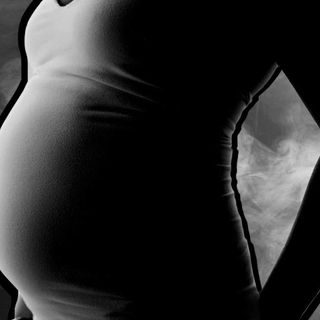
Science Has Identified Four New Personality Types. Which One Are You?
Being ‘a Carrie’ doesn’t count.

Personality typing is seductive — when it feels right, it’s comforting, as if finally there’s someone (or some quiz) that understands you. And when it feels wrong, there’s immense satisfaction in scoffing at an attempt to assign a handful of labels to humanity’s vast complexity. So, get excited — there’s a new paradigm to play with (or scoff at), and for the first time it comes with scientific, not just theoretical, backing: Researchers, using data from 1.5 million people, have classified the human race into four personality types: average, reserved, role model, and self-centered.
“Personality types only existed in self-help literature and did not have a place in scientific journals,” said Luís Amaral of the McCormick School of Engineering at Northwestern University, USA. Amaral led the research, published in Nature Human Behaviour. “Now, we think this will change because of this study.”
Previous personality typing systems were rooted in theory rather than data. For instance, the popular Myers-Briggs paradigm is based on the theories of Carl Jung, a Swiss psychotherapist influential in the first half of the 20th century. Because these systems lack experimental evidence, “the social psychology community is pretty in line with being anti Myers-Briggs Type personality assessments,” Alexander Swan, a psychologist at Eureka College, USA, told The Washington Post.
But big data may be changing that view. The new, four personality types Amaral’s team developed used data from 1.5 million responses, from the US and UK, to clinical quizzes that gauge personality traits. Personality traits are widely accepted by social scientists, as they’ve been proven through experimentation to hold true across ages and across cultures, especially the Big Five traits: openness, conscientiousness, extroversion, agreeableness and neuroticism. All people exhibit these traits to varying degrees (you can test where you fall on these traits here) — and the varying degrees comprise your personality type, according to the algorithms developed by Amaral’s team. These four personality types are:
Average
Average people are high in neuroticism and extraversion, while low in openness. Women are more likely than men to fall into the Average type. “I would expect that the typical person would be in this cluster,” said Martin Gerlach, a postdoctoral fellow in Amaral’s lab and the paper’s first author.
Reserved
The Reserved type is emotionally stable, but not open or neurotic. They are not particularly extraverted but are somewhat agreeable and conscientious.
Role Models
Role Models score low in neuroticism and high in all the other traits. “These are people who are dependable and open to new ideas,” Amaral said. “These are good people to be in charge of things. In fact, life is easier if you have more dealings with role models.” More women than men are likely to be role models.
Self-Centered
Self-Centered people score very high in extraversion and below average in openness, agreeableness and conscientiousness. “These are people you don’t want to hang out with,” Revelle said.
If you’ve taken the Big Five test and don’t like or agree with where you fall within these four personality types, rest easy: Amaral’s team found that personality type can also change with age. The likelihood that someone is a Role Model, for instance, increases dramatically with age, for women and men, and the teenage boys in the study were disproportionately represented as the Self-Centered type.
The researchers say this evolution between personality types is where further research should focus, as the finding runs contrary to traditional theorizing that personality is more or less set by young adulthood.
These four personality types aren’t set in stone. Other experts in the field are criticizing them — not necessarily because they’re wrong, but because they’re not particularly helpful. One called the classification of a personality as average “weak.” Another has said these four personality types suffer from the same problem all personality typing systems do: They limit people’s identities, rather than look at the full context of their experiences.
In the end, though, that may be the point. The full context of the human experience is so vast, it can be difficult even for individuals to sort through on their own — which is where personality typing comes in.
Liesl Goecker is The Swaddle's managing editor.
Related


Eating a Lot of Gluten During Pregnancy May Increase Kids’ Diabetes Risk
